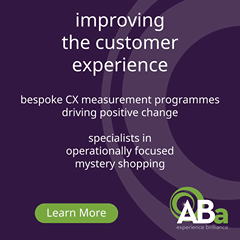How independent retailer Philip Morris & Son is bucking Highstreet trends
It’s an ongoing battle that we hear about a lot; the highstreet retail landscape is facing significant upheaval.
Numerous household brands are closing their doors, including Fenwick in London, an institution since 1891, which closed its Bond Street store this February. This was added to the long list of retail casualties including Debenhams, which shut down all its physical stores in 2021 after 242 years of trading. House of Fraser and BHS are other well known names that have struggled or disappeared entirely, painting a bleak picture for traditional retail giants.
The relentless rise of online shopping, high business rates, and changing consumer habits, have all contributed to this decline; accelerated by the pandemic in 2020 which saw over 17,000 chain stores close their doors for the last time. There is however, a silver lining to all of this. In true British stoic fashion, local shops and family run businesses have benefited from a resurgence of support from their customers who are keen to shop local. A survey by Visa found that 54% of UK consumers prioritise shopping at their local stores to support their community, creating an opportunity for the smaller retailers to prosper.
A good example of showing resilience in retail, is Hereford-based Philip Morris & Son, which next year will be celebrating its 180th year in business. Originally an ironmonger, the family evolved the business into a modern day ‘brick and click’, offering its customers high end clothing brands, accessories, dogwear and even shooting accessories.
The family realised that further efficiencies were needed to stay in touch with customer needs, and in line with their ambitions for the store. Following the implementation of a brand new ePOS system (by Lightspeed Retail, they were able to streamline the business transactions, keep on top of over 80,000 SKUs, and save time within the team so they can focus on more valuable tasks than data entry.
Bruce Jones from Philip Morris highlights the efficiency gains: “The till operators are only pressing one button, feeding transactions straight through to the card machine. So, that makes it quick. It has reduced errors completely. We no longer have to buy credit card rolls. So that reduces costs and makes it a lot more efficient.”
This move to a more robust ePOS system has given Philip Morris & Son a deeper understanding of their customers’ behaviours and preferences, enabling them to tailor their offerings and marketing strategies more effectively. So, while many big name retailers are struggling or shutting down, local retailers like this one are able to maintain a strong connection with their community and stay agile, by embracing technology. They have not only survived, but thrived, against all odds, setting a benchmark for resilience in the retail industry.














